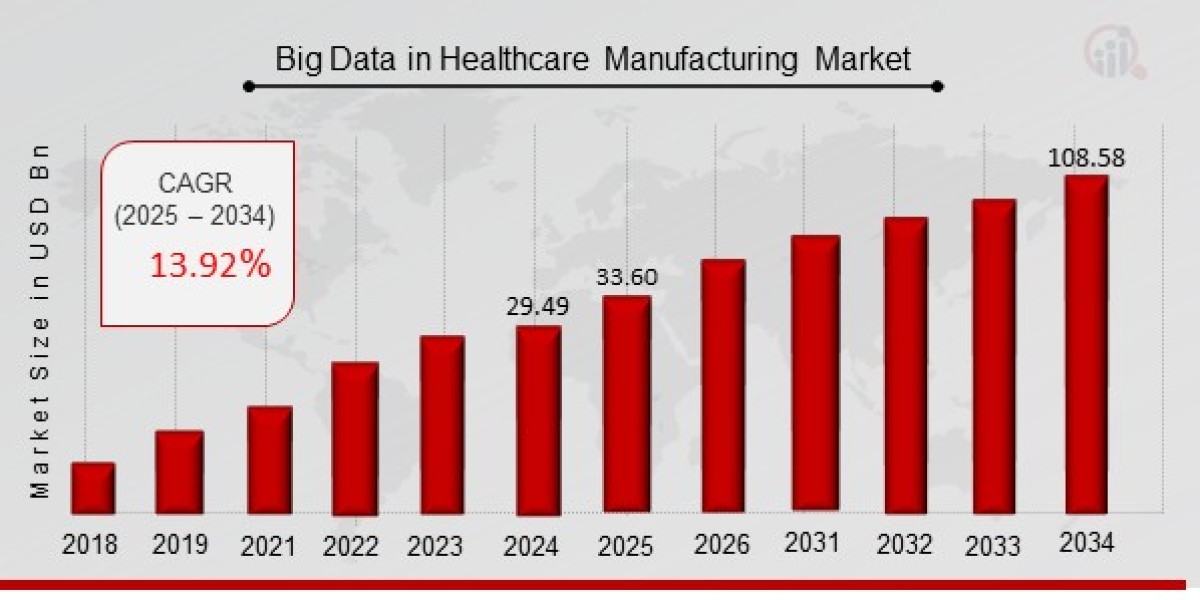The healthcare industry is undergoing a digital transformation, and at the heart of this revolution is big data. From drug manufacturing to medical device production, big data analytics is driving efficiency, improving quality, and even accelerating life-saving innovations. As healthcare manufacturing becomes more complex, leveraging data-driven insights is no longer an option—it’s a necessity.
What is Big Data in Healthcare Manufacturing?
Big data refers to the vast and complex sets of healthcare-related information that are generated daily from various sources, including clinical trials, patient records, supply chain management, and Internet of Medical Things (IoMT) devices. In manufacturing, this data is analyzed to enhance production efficiency, reduce waste, and ensure compliance with stringent regulatory standards.
How is Big Data Transforming Healthcare Manufacturing?
1. Optimizing Drug Development and Production
The pharmaceutical industry is one of the biggest beneficiaries of big data analytics. By analyzing vast datasets from clinical trials, patient demographics, and genetic profiles, pharmaceutical companies can:
- Predict drug efficacy before full-scale trials begin.
- Identify potential side effects early in the research phase.
- Speed up FDA approvals through real-time data insights.
- Reduce production costs by optimizing the supply chain and reducing material waste.
2. Enhancing Medical Device Manufacturing
Medical devices, from pacemakers to prosthetics, require strict precision and quality control. Big data helps manufacturers:
- Detect manufacturing defects in real time through predictive analytics.
- Improve device personalization, using patient data to create custom-fitted implants and wearables.
- Ensure regulatory compliance by tracking each component’s lifecycle from raw materials to final product.
3. Reducing Supply Chain Disruptions
Supply chain management in healthcare manufacturing is complex due to the need for high-quality raw materials and strict safety regulations. With big data, companies can:
- Predict shortages before they happen by analyzing market trends and demand forecasts.
- Monitor real-time shipments to prevent delays in the supply chain.
- Automate inventory management, ensuring that manufacturing plants never run out of essential materials.
4. Improving Patient Outcomes with Predictive Analytics
Big data isn't just about optimizing production—it also plays a crucial role in patient-centered manufacturing. By analyzing patient data, manufacturers can:
- Develop targeted therapies for specific populations, leading to better treatment outcomes.
- Create smart implants that adjust their functions based on real-time patient data.
- Reduce medication errors by integrating AI-driven quality control into pharmaceutical production.
5. Strengthening Regulatory Compliance and Safety
Regulatory compliance is one of the biggest challenges in healthcare manufacturing. Non-compliance can lead to huge fines, recalls, and reputational damage. Big data ensures:
- Automated documentation, reducing human errors in compliance reporting.
- Real-time quality control, ensuring every product meets safety standards.
- AI-driven audits, making inspections faster and more accurate.
Challenges of Implementing Big Data in Healthcare Manufacturing
Despite its advantages, integrating big data comes with challenges, such as:
- Data security risks – Healthcare data is sensitive and a target for cyberattacks.
- High implementation costs – Advanced analytics require investment in technology and skilled personnel.
- Regulatory hurdles – Compliance with data privacy laws (like HIPAA and GDPR) is a significant concern.
Big Data in Healthcare Manufacturing Market Overview
As per MRFR analysis, the Big Data in Healthcare Manufacturing Market Size was estimated at 29.49 (USD Billion) in 2024. The Big Data in Healthcare Manufacturing Market Industry is expected to grow from 33.60 (USD Billion) in 2025 to 108.58 (USD Billion) till 2034, at a CAGR (growth rate) is expected to be around 13.92% during the forecast period (2025 - 2034).
The Future of Big Data in Healthcare Manufacturing
As artificial intelligence (AI) and machine learning (ML) advance, the role of big data in healthcare manufacturing will expand even further. AI-driven predictive maintenance, blockchain-based supply chains, and real-time patient monitoring for personalized drug production are just a few developments on the horizon.
Final Thoughts: The Data-Driven Future of Healthcare
Big data is more than just a buzzword in healthcare manufacturing—it’s a game-changer. From faster drug production to smarter medical devices and safer, more efficient supply chains, the impact of data-driven innovation is undeniable. As manufacturers continue to adopt big data analytics, the future of healthcare will become more precise, personalized, and patient-focused.
For more information, please visit @marketresearchfuture






